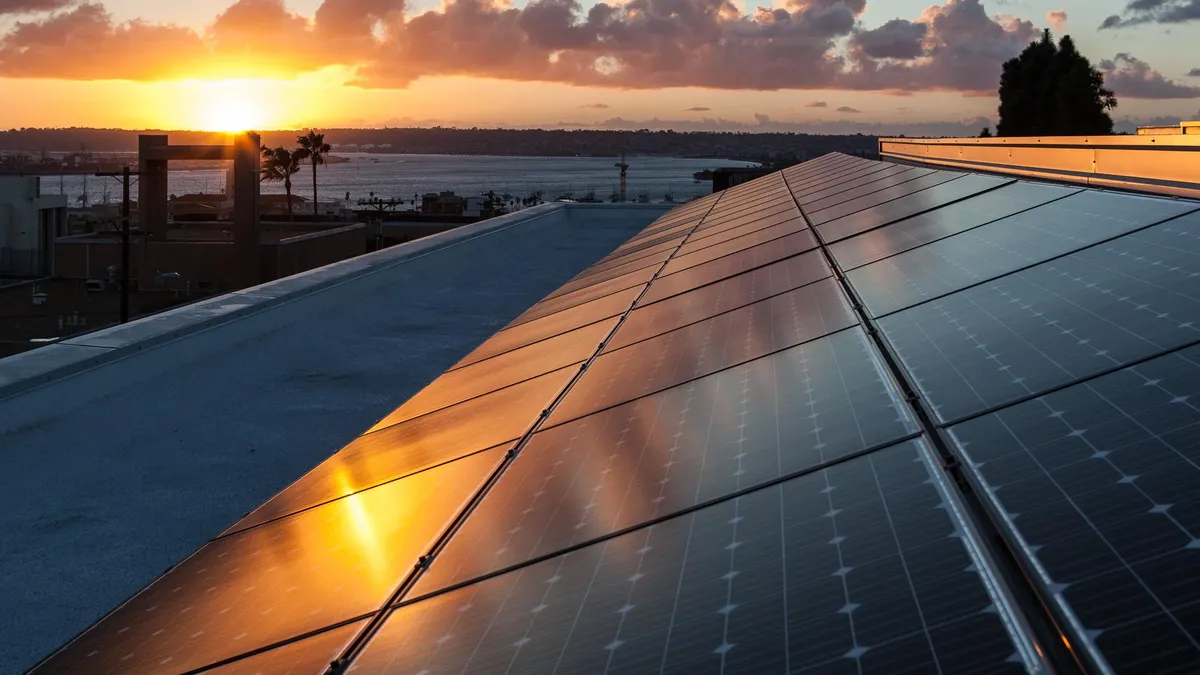Dive Brief:
- Rep. Mike Thompson (D-CA) has introduced a proposal to extend investment tax credits (ITC) for energy efficient residential and commercial property through 2021, saying the credit has been vital to helping spread solar power across the country.
- The New Energy for America Act, HR 2412, would also extend the tax credits for other clean energy technologies, such as fuel cells, stationary microturbines, combined heat and power property, small wind and geothermal heating and cooling property.
- The Solar Energy Industries Association (SEIA) was quick to express its support for the bill, saying the solar bill is an $18 billion a year industry and the measure will help support thousands of jobs.
Dive Insight:
Rep. Thompson this week proposed extending energy efficiency tax credits through 2021, saying the Investment Tax Credit has been key to supporting hundreds of thousands of jobs and can continue to boost the United States economy.
But the lawmaker also said that with the tax credit expiring at the end of next year, the solar industry faces a serious issue. If the credits expire, solar jobs and environmental gains will be at risk before the renewable energy has the chance to reach parity with other resources.
"The ITC is one of the most important tools we have that supports the deployment of solar energy in the United States,” Thompson said in a statement. “Since 2006, when the residential and commercial ITCs first took effect, employment in the U.S. solar industry has grown to 175,000 jobs at more than 8,000 solar companies. It has a proven track record of success and it’s important that we extend it.”
The measure would extend residential and commercial ITCs for five years, during which time some analysts believe solar will reach grid parity.
The tax credit was extended in 2008 for eight years, and Thompson that in that time it has helped to leverage billions in investment in American solar facilities. The result has been installed capacity equal to 97% of total solar in the country, while the cost of solar power has also fallen by more than 70% in the last decade.
The measure drew support from SEIA, which said the credit is "paying huge dividends" for the country's economy and renewable power growth.
“Today, the solar industry is pumping $18 billion a year into our economy and creating tens of thousands of new jobs,” Rhone Resch, SEIA president and CEO, said in a statement. “By 2016, we will be generating enough clean solar energy nationwide to power 8 million homes, offsetting 45 million metric tons of damaging carbon emissions.”
The bill has been referred to the House Committee on Ways and Means.















